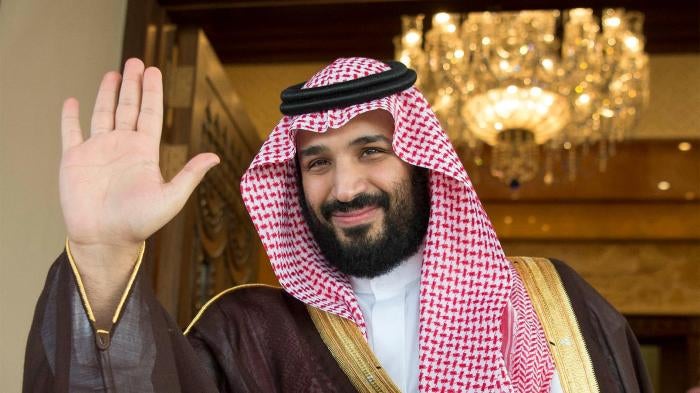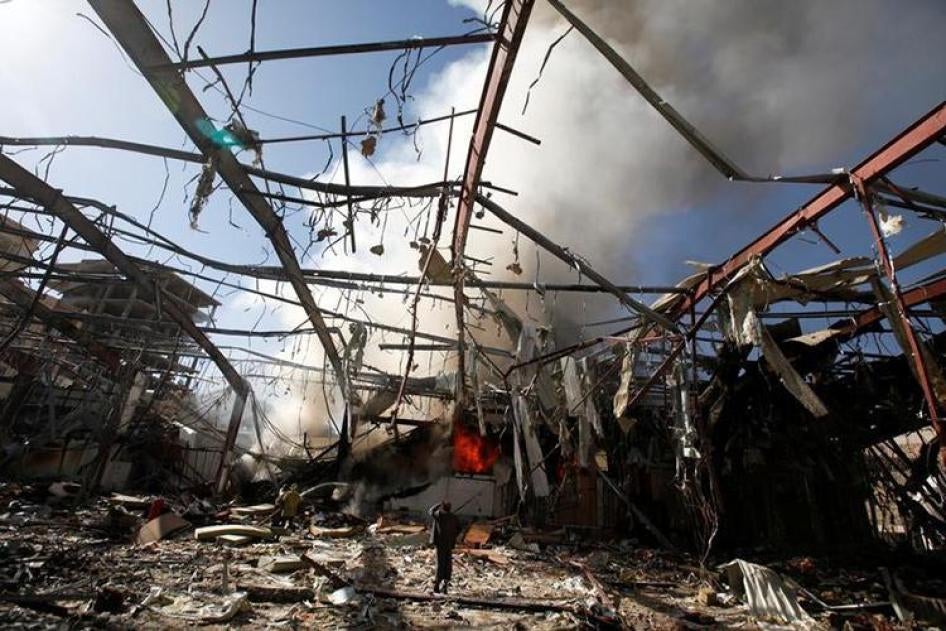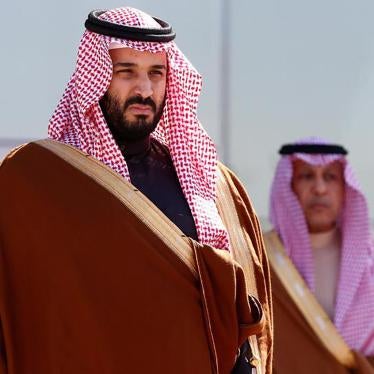Policy wonks and politicians have long touted Saudi Arabia as a key U.S. ally, a much-needed bulwark of stability in a “turbulent Middle East.” This relationship will likely get a boost this week, following Crown Prince Mohammed bin Salman's meeting Tuesday with President Donald Trump.
The U.S.-Saudi friendship spans decades, but Trump and the crown prince, commonly referred to by his initials “MBS,” share a particular talent at attracting headlines. They also appear more brazen, almost eager, to spin facts — or ignore them — to deflect criticism of their own and each other’s rights abuses at home and abroad.
After rapidly consolidating power at home, MBS is on a world tour aimed at shoring up foreign support and investment. His trip to the U.S. reportedly will include not only Washington, but New York, Boston, Seattle and Silicon Valley — centers of American power and industry.
Saudi Arabia (with its array of public relations firms) has a particular narrative to sell on this trip: A country on the cusp of change. A bold reformer on a transformative path. An ally dedicated to helping the U.S. meet its security needs against extremists and Iran.
And yet, since MBS was promoted to Crown Prince last June, his government has rounded up
prominent clerics and intellectuals and worked to stifle any form of dissent. In just the past two weeks, journalists
reported that 17 detainees among the princes, businessmen and government officials imprisoned this past November in the Riyadh Ritz-Carlton on alleged corruption charges required hospitalization for physical abuse. (Saudi Arabia's foreign minister
has denied that any abuse occurred.) Even some of the reforms have been mixed with repression: When Saudi Arabia finally lifted the ban on women drivers, officials called women who had long worked for the change,
ordering them to be silent.
And so, as the Saudi delegation makes its way around the country, U.S. lawmakers need to push past the official spin — to look squarely at Saudi rights abuses and their impact and to consider what more the United States could do to best ensure that its relationship with Saudi Arabia does not enable or contribute to enormous harm.
Mohammed bin Salman is a key player in this war. He is the defense minister of the nation leading the coalition fighting the Houthis and
serves as the coalition commander.
The United States, too, is a party to this conflict — alongside the Saudis — providing aerial refueling to coalition aircraft on bombing missions, and, at least early in the war, intelligence. According to Human Rights Watch and Amnesty International reports, U.S.-origin munitions have been found at the site of
more than two dozen apparently unlawful coalition attacks in
Yemen.
U.S. lawmakers need to look squarely at Saudi rights abuses and consider what more the United States could do to best ensure that its relationship does not contribute to enormous harm.
In Yemen, the coalition could mitigate suffering — by compensating victims of unlawful strikes, ending unlawful attacks and freeing up access for commercial and humanitarian goods. In Saudi Arabia, the crown prince is trying to take credit for women’s rights reforms, even though Saudi women
have been emancipating themselves for decades.
Trump’s silence on human rights represents a failure to capitalize on the leverage the U.S. has with Saudi Arabia. But, Congress can do more. U.S defense contractor Raytheon is
reportedly courting lawmakers, seeking approval to sell billions of dollars more precision-guided munitions to Saudi Arabia. Weapons deals need Congressional approval and controlling arms sales is one of the tools available if Congress wants to help stop Saudi abuses. The last three years have made it clear that Saudi Arabia pays attention when
countries seriously consider curbing sales; it’s time for Congress to step in and make clear it will do so.
The president and the crown prince might not want to reckon with the reality of their rights abuses, but U.S. lawmakers owe it to the Yemeni civilians still suffering, the Saudi activists still behind bars and the women still fighting for freedom — full freedom — to ask the right questions and to push these powerful leaders to answer them.










